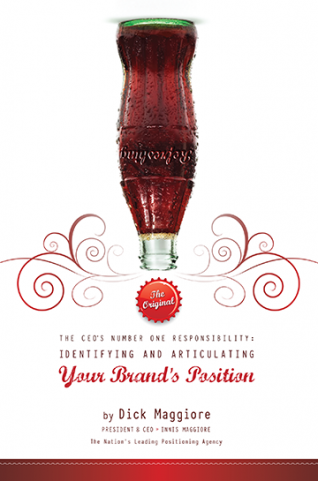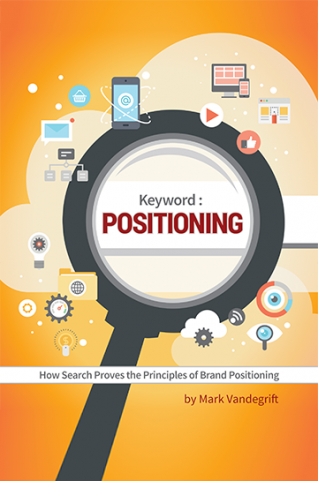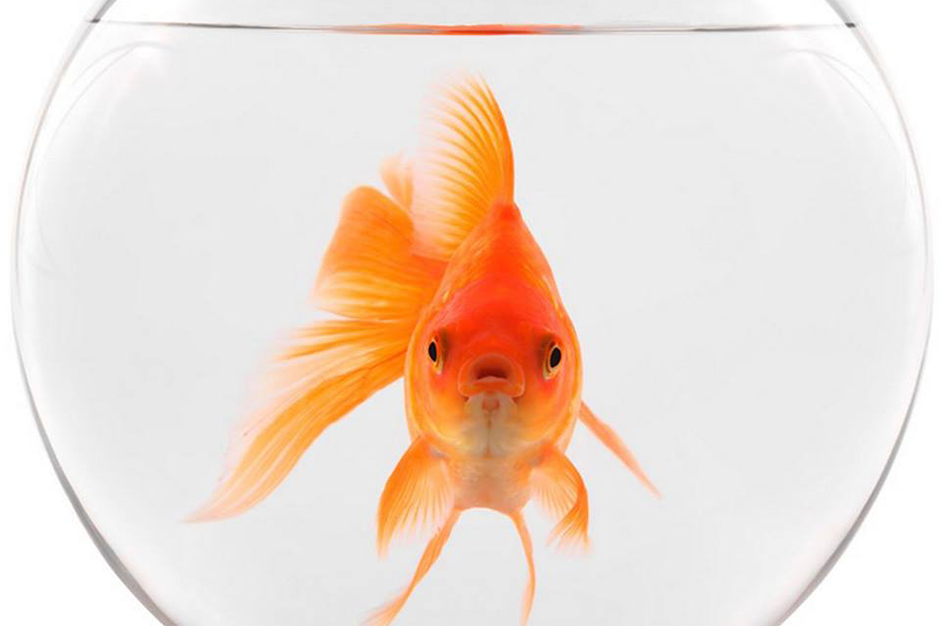In an era of information overload, brand differentiation strategy becomes more important than ever.
If information contained calories, we’d all be fat
A Microsoft-sponsored study found the average human attention span has fallen from 12 seconds in 2000, around the time the mobile revolution began, to eight seconds in 2015.
We’re all on information overload. Even goldfish have it better than people. Their attention span is believed to be nine seconds.
Back in 1980, when Jack Trout and Al Ries wrote the seminal book on the concept of positioning, each of us was bombarded with about 1,500 advertising message each day. Trying to get a message into the consumer’s mind was becoming a very big challenge. That’s why they developed and coined the term “positioning.”
It’s getting worse. Much worse.
Today, depending on which research you prefer, we’re being hit with around 4,000 advertising messages each day. Some say it’s closer to 10,000.
Like I said, if information had calories, we’d all be huge — suffering from what has come to be known as “infobesity.”
With so much information and so many distractions, what’s a marketer to do?
In today’s hypercompetitive global marketplace, brands and companies need to clearly differentiate themselves if they are to survive, let alone succeed. As Jack Trout wrote, “Differentiate or die.”
Differentiation strategy is a necessity
Positioning, differentiation, in today’s overcrowded marketplace is a business imperative. To cut through all this clutter, your brand must stand for one cohesive idea in the minds of your prospects and customers. The more that idea is different from your competitors’, the better. The more that idea is meaningful to your prospects and customers, the better. The more you are passionate about that idea, the better.
“One of the effects of living with electric information is that we live habitually in a state of information overload. There’s always more than you can cope with,” professor and philosopher Marshall McLuhan said.
Even in the 1960s, McLuhan saw it coming.
Today we create as much information every two days as we did from the dawn of civilization up until 2003, according to Google’s founders Larry Page and Sergey Brin. That’s something like five exabytes (one with 18 zeros after it).
More than 300 hours of YouTube videos are loaded every minute. Five billion videos are watched on YouTube every day.
More than 200 billion emails sent every day. That’s 2.4 million emails sent every second. A McKinsey report found that the average worker spends nearly 20 hours of work time managing email each week, and we check our email 50 to 100 times a day.
People who are reading or sending emails or texts are not able to do anything else very well. Studies have shown we cannot focus on more than one task at a time. That’s especially true with driving and texting — a deadly combination.
A Business Week article reports a typical American office worker checks email 30 to 40 times each hour. We spend about 10 hours each day interacting with tablets, PC’s, TV’s and smartphones.
Did we mention how many text messages are sent each day? Six billion.
We repeatedly pat our pockets to make sure our smartphones are still there. Seventy-six percent of us feel phantom vibrations.
Fifteen percent of Americans admit to having interrupted sex to answer their phone. If that doesn’t say we’re obsessed with distraction, I’m not sure what does.
A report in the journal Science found 295 exabytes of data are floating around the world. That’s 29,500,000,000,000,000,000,000 pieces of information — roughly 315 times the number of grains of sand on Earth. Yes, we do have an information addiction.
Marketplaces are at fever pitch with the temperature rising. We cannot hide from the bombardment of advertising messages and information at every turn. There are just too many products, too many companies, too much marketing noise.
While no one doubts advertisers’ financial ability to disseminate all this information, there is some question about consumers’ ability to take it all in. We block most of the information. Names for this advertising avoidance include “banner blindness.” It means ads don’t even reach our level of consciousness.
While the volume of information has increased copiously, our mental ability to pay attention to marketing messages has not grown at all. In this environment, advertising simply does not work as it used to.
The human mind deals with extreme clutter in the best way it can: by blocking it out. There are physical structures in our brain designed to ignore everything that is predictable. If those structures weren’t there, we’d experience sensory overload.
So it’s no wonder our heads our spinning and the savviest marketers are finding, developing and promoting the heck out of their differentiation.
If we can get our message past the gatekeeper in your brain, only then do we have a shot at consideration. The desired result can best be achieved by properly positioning our product or service. Those who find their relevant and meaningful difference -- those with a differentiation strategy -- are on the road to winning against infobesity.



